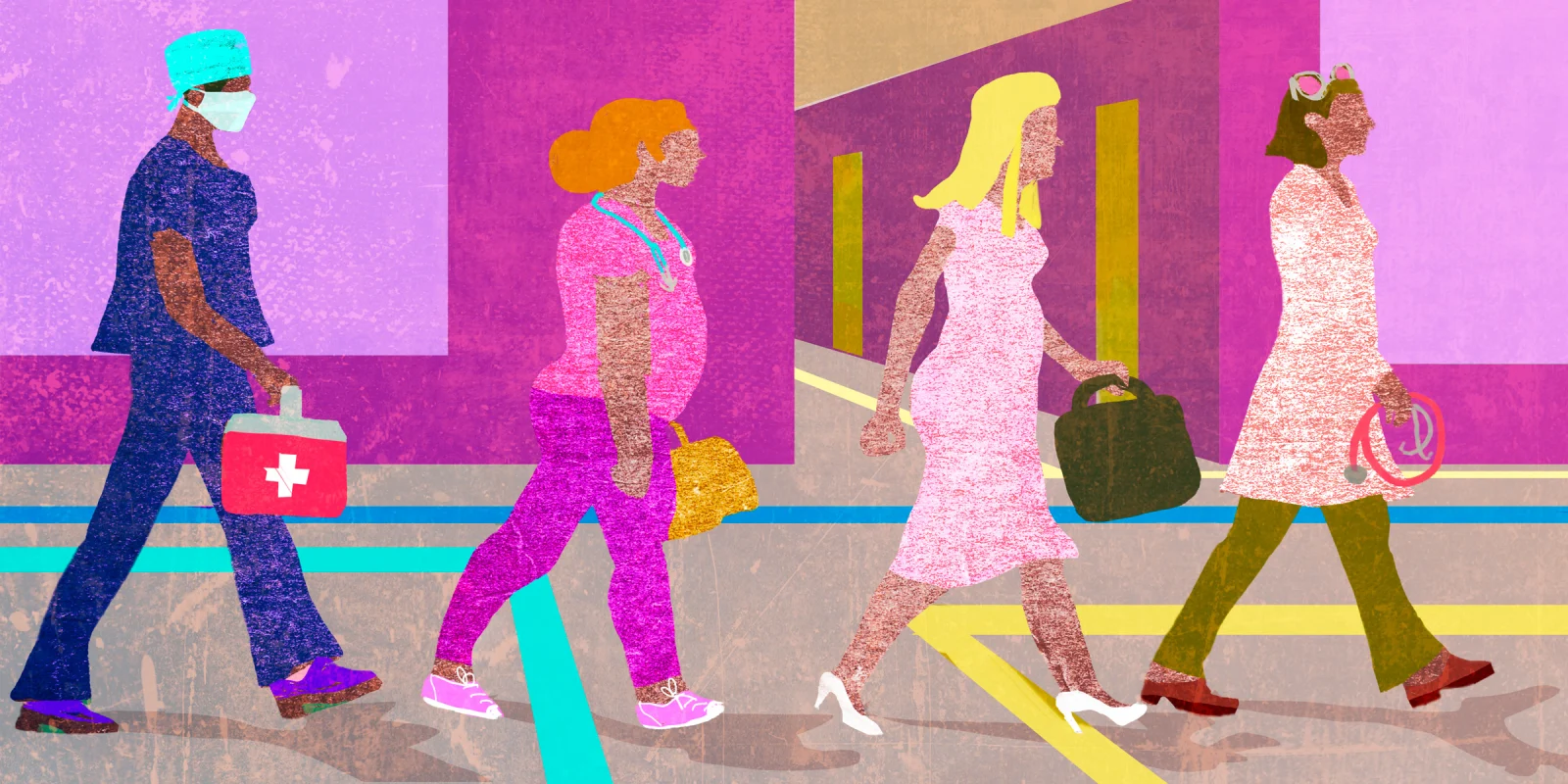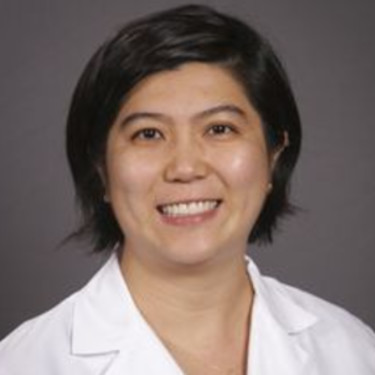Since before the COVID-19 pandemic, there has been anecdotal evidence and small survey-based studies that women are leaving academic medicine in droves, and are not returning — up to 40% of women leave medicine or go to a part-time position within six years of finishing residency. One landmark study pointed out the rarity of women in leadership positions — 35 years ago, less than 11% of women faculty were full professors, compared to 31% of men. A recent update showed that not much has changed in the last 20 years, with only 21% of women achieving full professorship, even though women make up over half of the medical school graduating classes. These findings suggest that women leave early or mid-career because of “an accumulation of microinequities.” The pandemic only magnified these inequities for women in medicine. As a woman physician who loved my job and loved teaching but felt that the rigamarole of academics impeded my ability to take care of my patients, I had to step away. I’m entering a role in private practice right now, and it is uncertain if I will go back to academics.
On one of my last days at the academic hospital, I stood in front of the elevators and stared at the name board next to it. I had just spent a morning assisting residents with learning robotic and laparoscopic skills when I could have been operating on my own case (and making the commensurate RVUs). As I studied the names under the Department of Surgery, I realized that my name wasn’t there. After two and a half years of being faculty, one that the residents enjoyed working with while still being one of the more productive young surgeons, I hadn’t even made it to the board. Strangely, one surgeon who had started after me (someone who had trained there, white, male) was on the board, so it wasn’t a matter of seniority. It was a matter of being overlooked and forgotten, yet again.
As I walked out of there, old feelings flared up. A few months before that, I had a miscarriage. The doctors said it was no fault of mine, but I knew it was because I worked too hard. I had 20 consults in 27 days even though I wasn’t on call. I was on my feet all day, dehydrated, and exposed to radiation. I was standing in the OR when it happened, but I still finished the case, went home, and cried because I knew what was happening. I went to the office and saw patients the next day. When I told my superiors that I’d had a miscarriage, one of them said I still had to take consults that day. Then I thought back to the early days of COVID when I struggled to get tested, and never could, even when I got sick. The administrators deployed us to the COVID hotbeds in Brooklyn and Queens while sitting in their ivory towers. At one point, we had to work our day jobs and take night shifts in the COVID ICU. This story isn’t about COVID, and these aren’t the reasons why I left. But they are the reasons why I couldn’t stay.
I was asked to be on the Anti-Asian Violence Committee and the LGBT committee and did resident interviews, mentored a medical student, and wrote abstracts every year. I took care of my patients and they seemed to trust me and kept coming back. But I didn’t have any research support, I wasn’t asked to give grand rounds, and I was an assistant professor but was repeatedly denied when I asked for a title or leadership role in the training or research programs. My senior partner, a person of color (POC), had taken 16 years to be promoted from assistant to associate professor. The benchmarks and growth paths were unclear and seemed arbitrary.
Before you say I couldn’t cut it, ‘it’ wasn’t what I signed up for, but ‘it’ was all I had ever known. We are trained in the world of academic medicine since it’s mostly places that have the volume that can have residency programs. I loved the world of academic medicine — I loved teaching and learning, researching and writing up small studies, working with residents and medical students, practicing the avant-garde in evidence-based medicine, and helping (mostly) diverse patient populations. But there was the other side of academic medicine, the publish-or-perish pressure to produce, the name-dropping little cliques that are impossible to get into, the lack of advancement opportunities if you’re a POC or a woman. I didn’t sign up for all that. I became a doctor to help people.
Last summer, I left my academic position as an assistant professor at a large academic hospital. The reasons for it are myriad and complex, and each could (and will) be its own essay. I chalk it up to a lack of support from my department — including after my miscarriage — a lack of opportunities for advancement, blatant disregard for my safety during the pandemic, wanting to pursue other interests, and starting a family, knowing that I had a long fight ahead of me as a woman, surgeon, and mom.
As I drove home from my new job in a private practice, I thought about my wife commenting that I seemed happier than I’d been in a long time. She thought my old job had sucked the life out of me. I thought I had some PTSD from being a young attending during COVID. I was happy I’d get to go home to my little family, at a predictable, reasonable time, where I could spend a few hours with my infant daughter before she went to bed, and a few hours with my wife after that. I didn’t want to be one of those parents who went to work before my kid woke up and got home after she fell asleep; I’m too sentimental for that. There’s little risk that I’ll get called in the middle of the night and have to go in. I don’t get to teach residents, but I still educate my patients, and can spend more time doing so. I still get to do clinical research. I’m not quitting medicine altogether and wasting the decade that I put into this career. I make what I make and work when I work. And I can give myself whatever title I want, and put my own name on the board.
Dr. Carmen Fong is a colorectal surgeon who recently moved from New York City to Atlanta, Georgia, with her wife and two cats. When she is not writing, she enjoys cooking, drawing cartoons, and reading about the mysteries of the universe. She can be found on Instagram @drcarmenfong and on Twitter @Carmen_FongMD. Dr. Fong is a 2022–2023 Doximity Op-Med Fellow.
Illustration by Jennifer Bogartz





